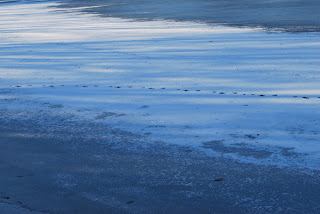This segment from Crime and Punishment is my idea of sci-fi, perhaps one of the spookiest vignettes ever written:
"Some new trichinae had appeared, microscopic creatures that lodged themselves in men's bodies. But these creatures were spirits, endowed with reason and will. Those who received them into themselves immediately became possessed and mad. But never, never had people considered themselves so intelligent and unshakeable in the truth as did these infected ones. Never had they thought their judgments, their scientific conclusions, their moral convictions and beliefs more unshakeable. Entire settlements, entire cities and nations would be infected and go mad. Everyone became anxious, and no one understood anyone else. Each thought the truth was contained in himself alone. They did not know whom or how to judge, could not agree on what to regard as evil, what as good. They did not know whom to accuse, whom to vindicate. People killed each other in some sort of meaningless spite. They gathered into whole armies against each other, but, already on the march, the armies would suddenly begin destroying themselves, the ranks would break up, the soldiers would fall upon one another, stabbing and cutting, biting and eating one another. In the cities the bells rang all day long. Everyone was being summoned, but no one knew who was summoning them or why. The most ordinary trades ceased, because everyone offered his own ideas, his own corrections, and no one could agree. Here and there people would band together, agree among themselves to do something, swear never to part--but immediately begin something completely different from what they themselves had just suggested, begin accusing one another, fighting, stabbing. Fires broke out. Famine broke out. Everyone and everything was perishing. The pestilence grew and spread further and further. Only a few people in the whole world could be saved. They were pure and chosen, destined to begin a new generation of people and a new life, to renew and purify the earth. But no one had seen these people anywhere. No one had heard their words or voices."

